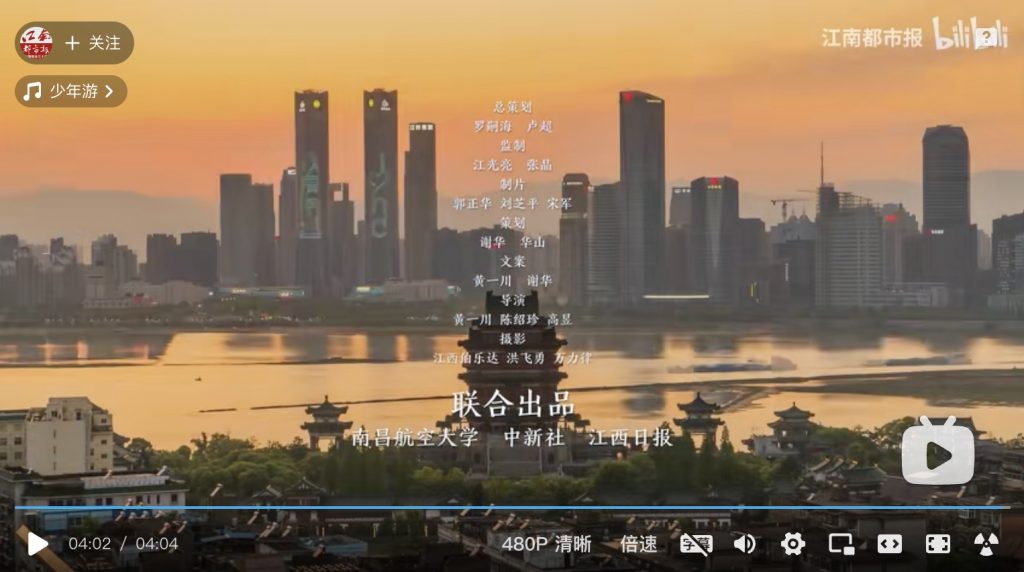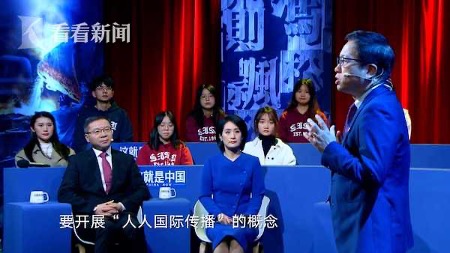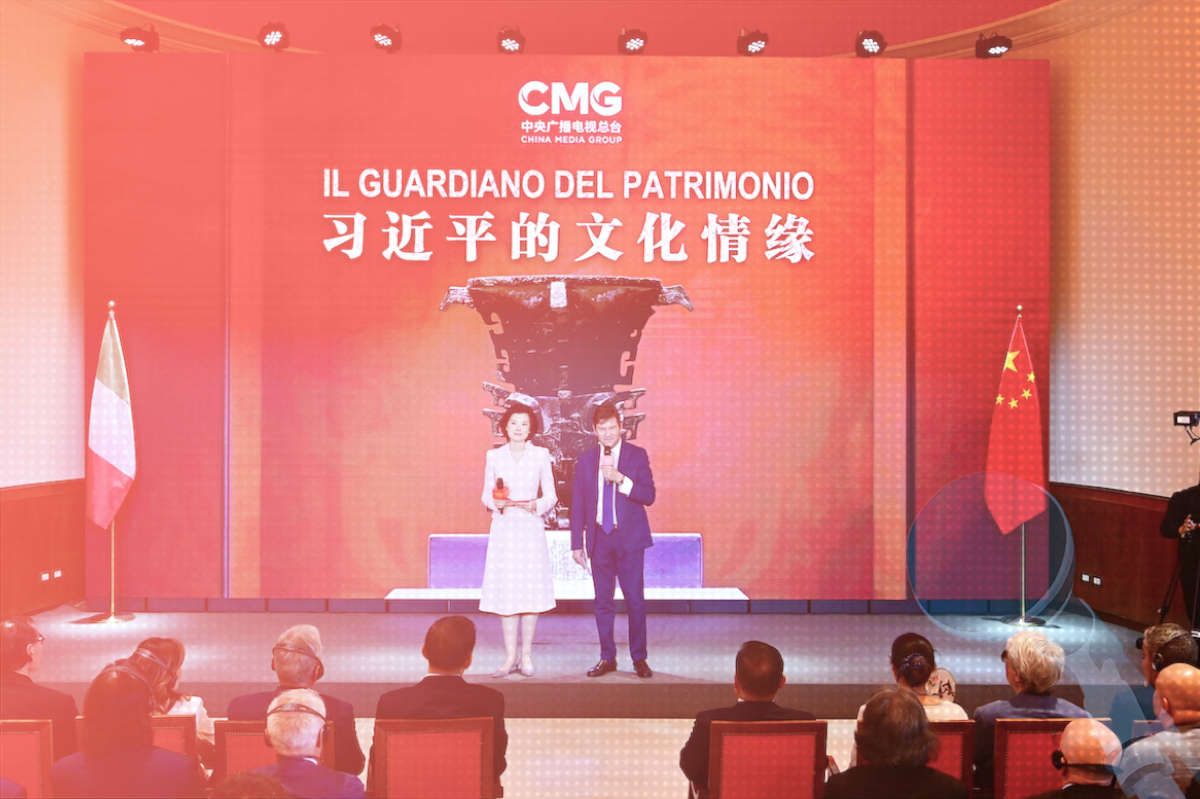Going Global
Getting Personal With State Propaganda

Image by Francis McKee available at Flickr.com under CC license.
Imagine you are a member of the international recruitment team at the University of Worcester in the UK, responsible for managing exchange programs with universities from China; or, alternatively, you are the president of the University of Northern Iowa, which has actively developed exchanges with Chinese universities. In either case, you would naturally expect your partners to engage in international exchanges, including yours, in good faith. You would expect them to uphold basic ethical and academic standards.
Now consider: How would you respond if you discovered that a Chinese university you partnered with had launched a specialized research center in partnership with that country’s Central Propaganda Department, whose purpose was to actively utilize foreign exchange students as “resources” for global propaganda?
Audacious though it may seem, such a scheme is already underway in China. It is one of the more egregious examples of how a range of actors in the country — including high-level Chinese Communist Party (CCP) bodies, state media, local governments, and universities — are responding to the top-down mandate from the CCP leadership to pursue greater “discourse power” around the world as a whole-society effort.
International Resources
Last month, Nanchang Aviation University (南昌航空大学), located in China’s southern Jiangxi province, announced that it had launched the “Jiangxi International Communication Research Center” (江西国际传播研究中心) in cooperation with the China Media Group, the state media conglomerate formed in 2018 directly under the CCP’s Central Propaganda Department. According to coverage by China Education Daily, a newspaper directly under the Ministry of Education, the new center is an experiment in combining central CCP media and universities (央媒+高校) to carry out international communication by using the “overseas student resources” (留学生资源) of the university.
Nanchang Aviation University has so far established cooperation with more than 70 universities in 20 countries, including the United States, the United Kingdom, and Ukraine. It reports that it currently has more than 1,600 international exchange students studying on campus in China. But the existence of the new center, and its exploitation of programs undertaken in the spirit of exchange, could also mean that Chinese students in programs overseas — like those in Worcester and Iowa — are enlisted for state communication work having no relation to their studies.
According to the China Education Daily report, the university had “taken the initiative in cooperating with the ‘international communication national team’ of China Radio International to invest lasting power in the university’s efforts at international communication capacity building.”
China Radio International (CRI) is China’s state-owned international radio broadcaster, which has now branched out into the production of multimedia content for the country’s external communication objectives. In order to achieve what Chinese leader Xi Jinping has called “telling China’s story well” (讲好中国的故事), enhancing the CCP’s influence on public opinion globally, CRI has partnered with local media abroad, and in some cases has sought to covertly influence content.
Exploiting Foreign Friends
Some of the products already created through Nanchang Aviation University’s utilization of the foreign student population may seem harmless enough. One example is the online video “Jingdezhen in the Eyes of Foreign Friends” (外国友人眼中的景德镇), in which Nanchang Aviation University graduate students “Muheet” (李想) and “Jonas” (吉达), both studying civil engineering, introduce local pottery-making traditions. Another is “Bringing You a Different Nanchang” (带你认识不一样的南昌), a city promo video that introduces the ancient history of Nanchang and promotes the city’s modern achievements as “creating new brilliance.”

But as a formal arrangement for the use of foreign students in Party-state propaganda, under the auspices of the state-run China Media Group and the Central Propaganda Department, the Nanchang Aviation University center is clearly a cause for concern. It is a fundamental corruption of the university’s educational mission and its relationship with students, which should be about providing high-quality programs. And it is a corruption of the spirit of international exchange among educational institutions globally, which should be undertaken with integrity, thinking first and foremost of the development and well-being of students.
The credits for “Bringing You a Different Nanchang” are visual proof of how these relationships and exchanges have been co-opted by the Chinese state for its own purposes. They make clear that the promo film was produced jointly by Nanchang Aviation University, the official China News Service (CNS), another China Media Group unit with responsibility for overseas propaganda, and Jiangxi Daily, the official CCP mouthpiece of Jiangxi province.
The so-called “Jiangxi International Communication Research Center” should also serve as a cautionary note about the transactional way the Chinese state conceives friendship and exchange. For decades, the “foreign friend” has been central to how Chinese leaders understand international relations and communication. CCP officials and diplomats have typically viewed friendship through a narrow frame of “goodwill” and “mutual friendship,” favoring those who have remained obligingly acritical and whose actions are seen to have advanced the Party’s own agendas.
Last October, in the midst of the 20th National Congress, China’s Foreign Languages Press released a book looking back on the positive views of China and the CCP propagated overseas by such friends as the journalist Edgar Snow and former French Prime Minister Jean-Pierre Raffarin. The book, Together on a Shared Journey: 100 Stories of the Communist Party of China in International Communication, was promoted during a foreign ministry press conference, thanks to a softball question from a local Shenzhen television station. And the state-run China Today plugged the book by quoting from another trusted foreign friend, Robert Lawrence Kuhn, who said in typical softball fashion: “Considering China’s role in the world today, foreigners should know and appreciate the real China.”
Making Propaganda Personal
In coverage of the new communication center, Nanchang Aviation University said the venture implemented the concept of “international communication by all” (人人国际传播), which emerged in Chinese strategic circles in 2022.
Speaking on Zhang Weiwei’s “China Now” (这就是中国) program on October 17, 2022, Guo Ke (郭可), the head of the School of Journalism and Communication at Shanghai Foreign Languages University, linked the idea of “international communication by all” to his own concept of “international communication +N” (国际传播+N). This was essentially the idea, “N” denoting an infinity of voices, that China’s global communication strategy must rely not just on state-run media and centralized messaging, but must be carried out by individual Chinese on a broad scale.

Guo spoke about the need for China to find new ways to communicate in the world in light of changes in technology and global engagement. No longer, said Guo, is international communication about traditional media such as newspapers, television, and radio. In the digital age, it intersects with the social realm. “Only when people all participate in the work of international communication can we resolve the challenges facing international communication. Only then can we use our attitude of self-confidence to build our discourse system with Chinese characteristics.”
The Nanchang Aviation University center is apparently the first application at the university level of the concept of “international communication by all.” The university said in the China Education Daily report that it “encouraged everyone to become microphone-wielding communicators,” affirming that “everyone can participate in the production and singing of the main melody of good China stories.”





















